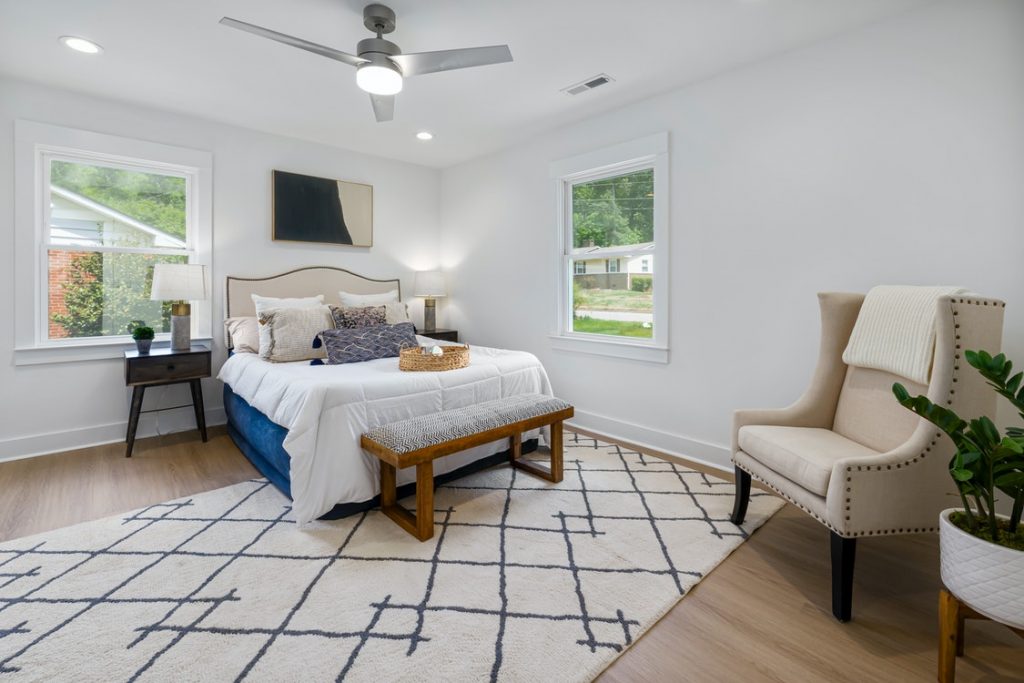Summer has arrived and the mercury has started rising. It’s time to turn on the air conditioner to cool off. While many people look forward to the comfort an AC provides, you may have many questions before you make the purchase. This article will answer some of your questions. Learn about the capacity of cooling an AC, its energy efficiency rating, noise level, and insulation. After reading this article, you’ll feel much better about your decision to purchase an air conditioner.
Air Conditioner’s Cooling Capacity
To find out your air conditioner’s cooling capacity, measure the size of the room you’re planning on cooling. Multiply the length and width of the room by 25. Then multiply that by the number of square feet. This will give you an approximate number of BTUs. Make sure to include people in the room as well. For example, if the room has two people, increase the cooling capacity by 600 BTUs each.
AC cooling capacity is measured in tonnage and British Thermal Units. A ton is equal to 12000 BTU. You’ll want to choose a unit with a higher BTU since a ton of heat will melt a ton of ice in a day. Then, choose the capacity that’s right for your room. If the room is less than 130 square feet, a 1-ton air conditioner should be enough. If the room is larger, you should consider purchasing a 1.5-ton AC.
Another important factor when purchasing an air conditioner is the amount of space it will cool. A 6 to 6.5 kW air conditioner should cool a room with at least six to seven square feet. A slightly higher capacity will be helpful in extreme temperatures, but not enough to make a room feel stuffed. An online calculator may recommend buying a larger air conditioner than you need. If you’re unsure of your cooling capacity, consult an air conditioning installer or use an online calculator.
Energy Efficiency Rating

Purchasing an air conditioning unit or an Air Cooler with the highest SEER or EER rating will save you money on energy bills. Higher-rated AC units feature newer technologies and better cooling capabilities. While higher-end units tend to cost more, they can last a lot longer and have fewer major malfunctions. If you want to buy an energy-efficient AC, be sure to research its EER rating and SEER before making a purchase.
The minimum EER rating for air conditioners and heat pumps is 11.5 or higher. However, the minimum EER rating for packaged and split systems is 12.5 and 12 respectively. While the minimum EER requirement is high enough to save money, you should not opt for the lowest EER rating when buying a system. To ensure maximum energy efficiency, opt for high-EER ACs. Moreover, they will reduce your energy bills, as well as greenhouse gas emissions.
If you’re buying a new air conditioning unit, you should be sure to check its energy efficiency rating. You can find it on the listing of your chosen unit. It’s easy to find the SEER rating, which varies from eight to thirty. The SEER rating is a measure of the cooling capacity in BTUs divided by the power consumption in watts. Higher numbers mean that your unit is more energy-efficient, but will likely cost you more money.
Noise Level
One important consideration when buying an air conditioner is the noise level. The noise level is measured in decibels (dB) and should be mentioned in the product’s specifications. The higher the number, the quieter the air conditioner is. Noise levels are also important to keep in mind since excessive noise can disturb sleep. Noise levels are measured in both indoor and outdoor units. The lower the number, the less noise is generated. For example, a 50-decibel AC will generate a lot less noise than a 90-decibel AC.
Noise levels vary from state to state, but you should know how to measure them before buying an air conditioner. A quiet air conditioner will produce a low humming sound and will not produce a high noise level. A high-quality air conditioner will also be quiet and won’t produce an annoying clanking noise. Noise levels are measured using a decibel system, which is important to know if you’re considering a new AC for your home or office.
Insulation
Before purchasing an AC, consider the benefits of good insulation. Your home should be well-insulated so that it can efficiently remove and replace heat. Proper insulation can also lower your energy bills. Follow this guide to learn about the types of insulation available and where you should place it. Then, you’ll be well on your way to saving money on your energy bills. You’ll be glad you did! Read on to discover how to install good insulation!
Adding insulation to your home will reduce energy bills and increase comfort. R-values measure the amount of resistance an insulator offers to heat and cold. R-values vary depending on the material, thickness, and density of insulation. The higher the R-value, the better your climate control will be. According to the Department of Energy, there are different levels of insulation for different climate zones, so check your local guidelines before buying an AC.
Condenser Coils
It is important to consider the quality of Condenser Coils before buying an air conditioner. It is the second-largest component of the system after the blower fan. Although it contains no mechanical parts, the coil plays a vital role in the system’s cooling process. When the refrigerant leaves the condenser, it travels through the copper tubing in a liquid state. The pressure of the refrigerant is controlled by a metering device and starts superheating in the coil.
The size of the condenser coils is another factor in determining their quality of them. Copper is much easier to maintain and repair in the field, while aluminum is less durable. Copper and aluminum are more durable than each other and are more expensive, but copper is more durable. Copper coils are generally the best choice for your air conditioner, while aluminum is the best choice if you’re looking to save money.
Electrical Requirements
You should know the electrical requirements before buying an air conditioner. This summer can be particularly tough on your home electrical system. Even the smallest air conditioner can quickly trip a breaker because it requires a lot of power. In addition, a new air conditioner can cause a surge in electrical consumption, straining your system even further. To prevent this from happening, choose an older model with fewer features. You should also check the size of the compressor before buying it.
When buying an air conditioner, take note of the voltage and amperage requirements of your current appliances. A window air conditioner will typically be more powerful than a typical household appliance, so it is important to check the voltage and amperage requirements. You may also want to pay attention to the plug face. If your new unit requires a 220-volt circuit, you should get an extension cord with a higher rating than the one that comes with your current air conditioner.
Size
Unlike many people, who may think of the size of an air conditioner as the physical dimension, the real size of an air conditioning system is a function of its cooling capacity. A cooling capacity of an AC is measured in British Thermal Units (BTU), a unit that measures the amount of heat it can remove from a space. As a result, the larger the BTU rating, the more powerful the air conditioning system is.
For the most effective performance, an air conditioner should be sized according to several factors. For example, it should have enough capacity to cool the room evenly, and the size of the room should be based on the amount of heat the room receives. The heat that enters a room from a sunny window is much different from heat that naturally circulates through a house on a hot day. Another factor to consider when sizing an air conditioner is the amount of humidity outside. The higher the relative humidity, the more moisture it holds. If it suddenly drops below a certain threshold, the moisture will be pushed out of the air.
Cost
If you want to install an AC unit in your home, the first thing that you have to consider is the price. It may seem expensive, but it is not. You need to know that AC replacement costs can easily increase by 10%. If you choose the wrong company, you can end up paying $4,500, while you only need to spend $3,500. There are a number of ways to cut the cost. First of all, you must get permission from your landlord. If your landlord does not allow you to do this, you must pay the cost of the installation yourself.
Another factor that determines the cost of installing an AC system is the efficiency of the unit. Higher SEER ratings are better, but they tend to be more expensive. Choose an AC with a 14 or 16 SEER rating to save on your energy costs. Older units may only have a SEER rating of 10 or less. Make sure that you research the system’s energy efficiency before you buy it. Also, do not forget to ask about the other comfort features you can add to your new system.




